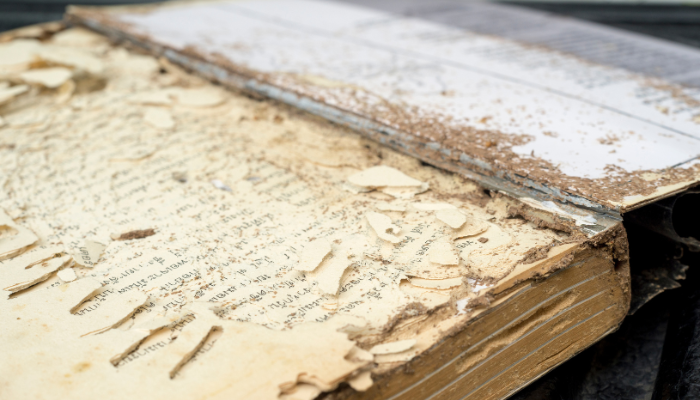Are your paper archives slowly vanishing without you realising?
Every day, irreplaceable newspapers, handwritten letters, office records, government files, and historical manuscripts are quietly fading into history, not from neglect, but from nature itself.
Paper especially older, acidic stock is under constant threat from:
- Disintegration due to acid content in the paper
- Water damage from leaks, humidity, and natural disasters
- Ink fading, making once-bold headlines and signatures unreadable
- Mould and mildew, especially in poorly ventilated storage
- Pests, such as silverfish and rodents, which target fragile documents
These are not just records. They are stories, legacies, and evidence, and once gone, they are gone forever.
Digitisation is more than simply scanning paper; it is the most effective and reliable way to safeguard our collective memory.
By converting fragile physical documents into high-resolution, searchable digital files, organisations can ensure long-term preservation, improve accessibility, and dramatically reduce the risk of loss from physical degradation.
Digital archives are immune to mold, water damage, ink fading, and pests, and can be securely stored, backed up, and accessed from anywhere. In an age where information must be both protected and made accessible, digitisation offers a sustainable, future-ready solution for preserving history before it’s lost to time.
At DatacomIT, we specialise in converting vulnerable physical archives into searchable, high-resolution digital files – securely stored, easily accessed, and immune to time’s decay.
Whether you manage a public institution, a government body, or a private archive, now is the time to act. Delaying digitisation increases risk and recovery costs. And with evolving compliance and accessibility standards, staying proactive is essential.

